The NATO Secretary General is the public face of the Alliance and the person who directs the entire process of consultation and decision-making between the Allies. His job is to reach agreement on all decisions before they can be implemented. The Secretary General is appointed by NATO allies for a four-year term with the possibility of extension if all member states agree.
 |
Mark Rutte took office as the North Atlantic Treaty Organization’s 14th Secretary General on 1 October 2024. He joined NATO following a distinguished domestic and international career. Mr Rutte served as Prime Minister of the Netherlands for almost 14 years from October 2010 to July 2024. During this time, he presided over four coalition governments, proving his ability to forge consensus without compromising on his values.
|
During his tenure, he steered the Netherlands through times of significant national and global upheaval, including the economic crisis, the coronavirus pandemic, and the war in Ukraine.
The downing of Malaysia Airlines Flight 17 (MH17) by Russian-backed forces over Eastern Ukraine in 2014 marked a turning point in Mr Rutte’s premiership. It cemented his belief that no country can respond to today’s interconnected security threats alone.
He was a member of the Dutch parliament from January to May 2003 and leader of the liberal Dutch People’s Party for Freedom and Democracy (VVD) from 2006 to 2023. He led his party to election victory in 2010.
Mr Rutte started his professional career in the private sector in 1992, working in human resources management for Unilever and its subsidiaries. He studied Dutch history at Leiden University and has been a guest teacher at the Johan de Witt group of schools in The Hague since 2008.
Source: NATO
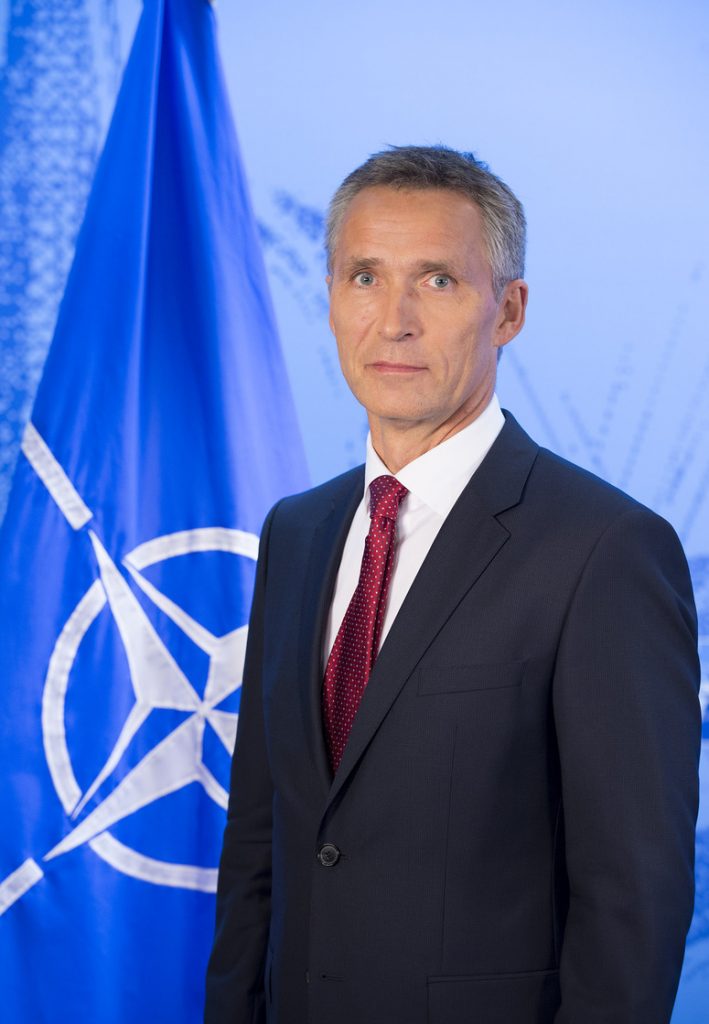 |
Stoltenberg was appointed as NATO Secretary General on the 1st of October 2010, his term of office will last until September 30, 2022. He was born in March 1959 in Oslo. He previously served as the prime minister of the Netherlands from 2010 to 2024, and as the leader of the People's Party for Freedom and Democracy from 2006 to 2023, before leaving national politics.
|
In 1987, he completed his studies in economics at the University of Oslo, and later completed postgraduate studies there.
While Mr Stoltenberg was Prime Minister, Norway’s defence spending increased steadily, with the result that Norway is today one of the Allies with the highest per capita defence expenditure. Mr Stoltenberg has also been instrumental in transforming the Norwegian armed forces, through a strong focus on deployable high-end capabilities. Under his leadership, the Norwegian Government has contributed Norwegian forces to various NATO operations.
Mr Stoltenberg is a strong supporter of enhanced transatlantic cooperation, including better burden-sharing across the Atlantic. He sees NATO and the EU as complementary organisations in terms of securing peace and development in Europe and beyond.
Mr Stoltenberg has had a number of international assignments. These include chairing the UN High-level Panel on System-wide Coherence and the High-level Advisory Group on Climate Change Financing. He was also UN Special Envoy on Climate Change.
Mr Stoltenberg is married to Ingrid Schulerud. Together they have two grown-up children.
Source: NATO
 |
Anders Fogh |
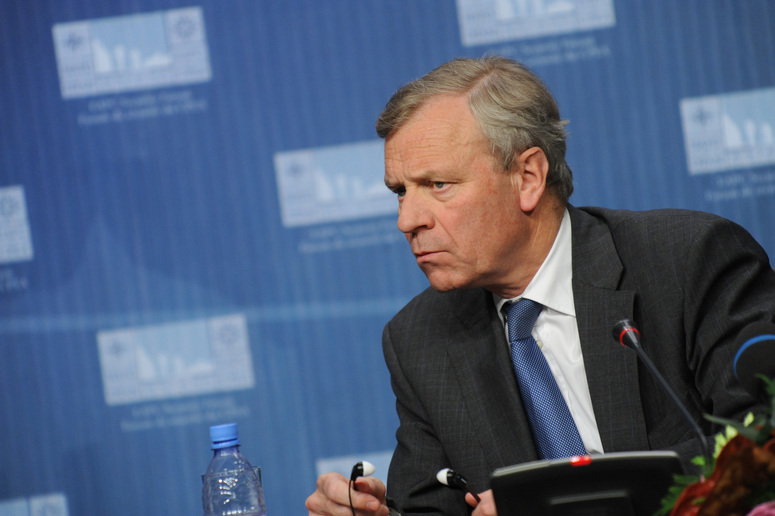 |
Jaap de Hoop Scheffer Netherlands 2004 - 2009 |
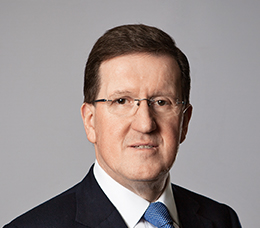 |
George Islay |
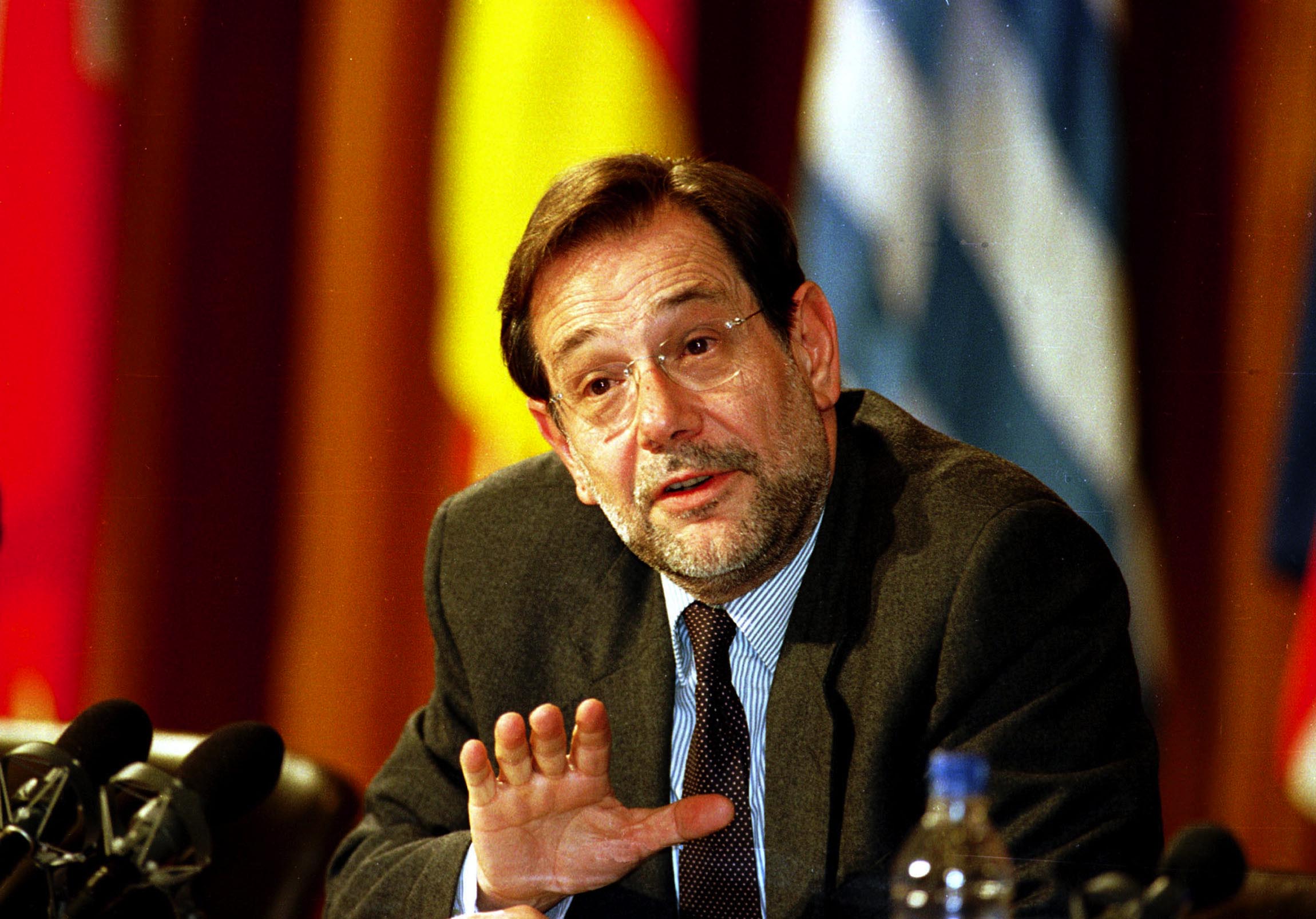 |
Javier Solana |
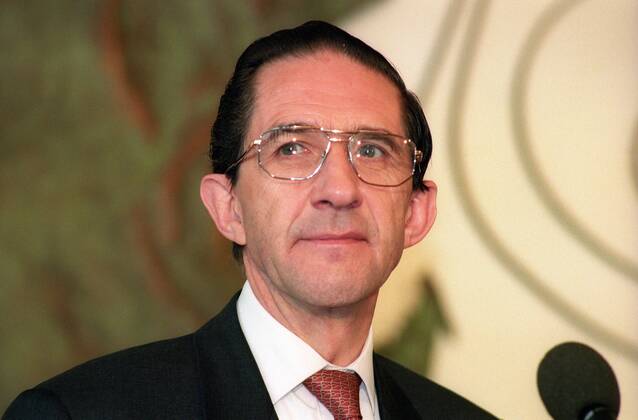 |
Willy Claes Belgium 1994 - 1995 |
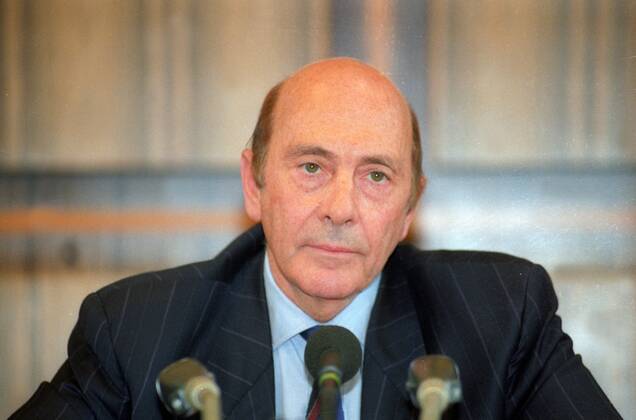 |
Manfred Wörner Germany 1988 - 1994 |
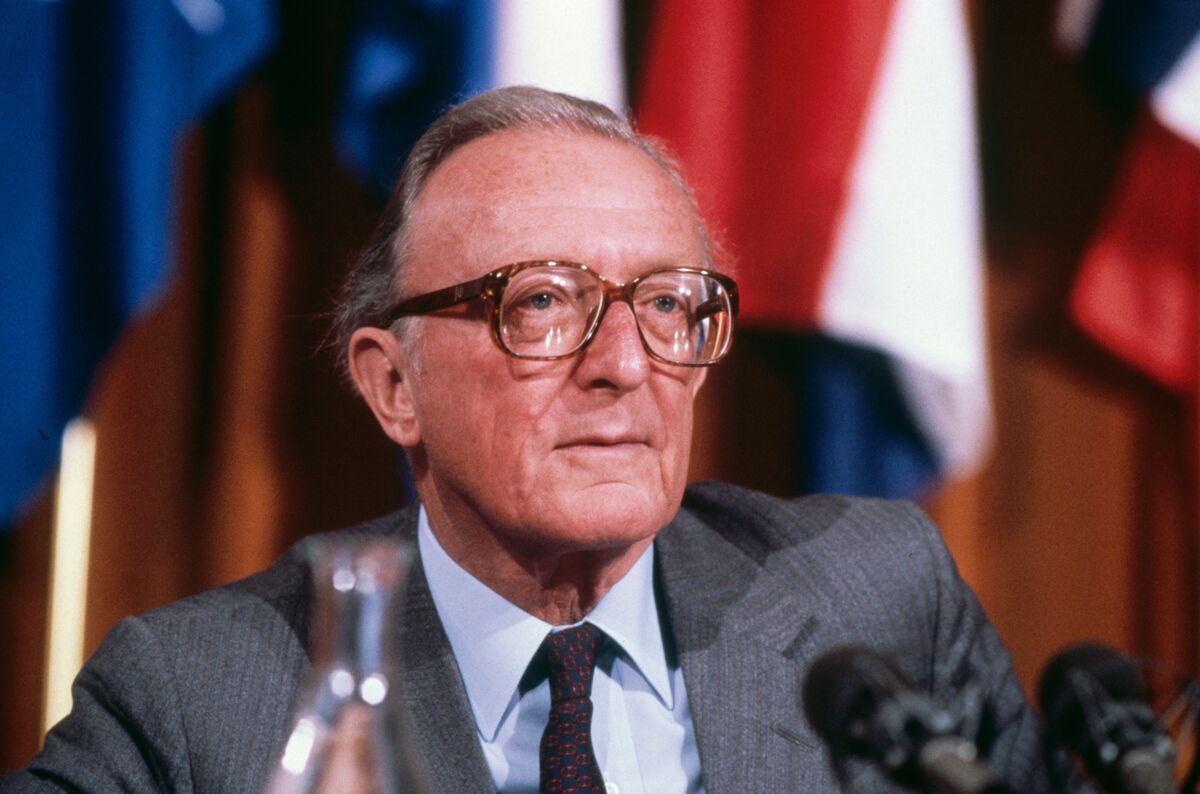 |
Lord Carrington Great Britain 1984 - 1988 |
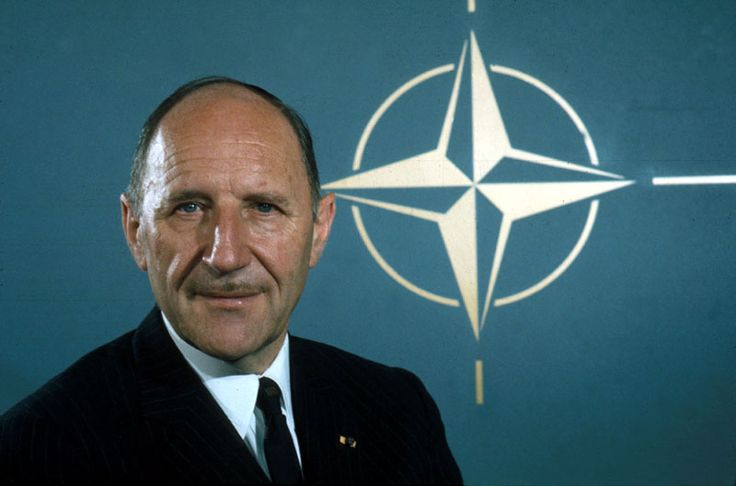 |
Joseph Luns Netherland 1971 - 1984 |
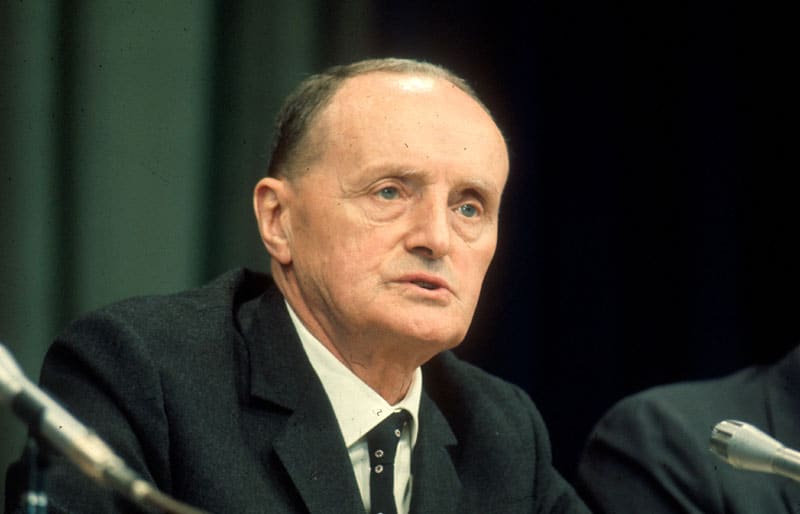 |
Manlio Brosio Italia 1964 - 1971 |
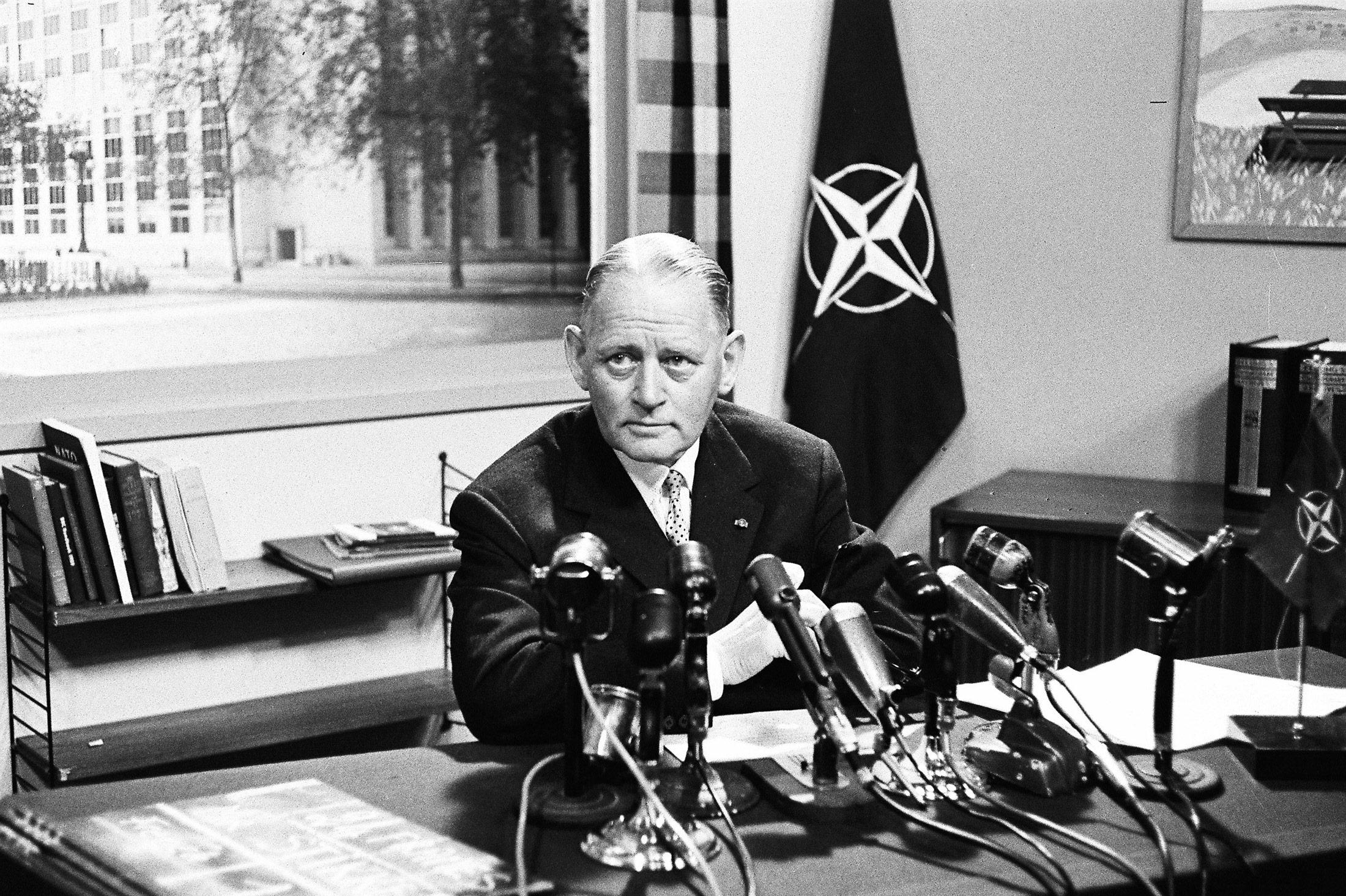 |
Dirk Stikker Netherlands 1961 - 1964 |
 |
Paul-Henri Spaak |
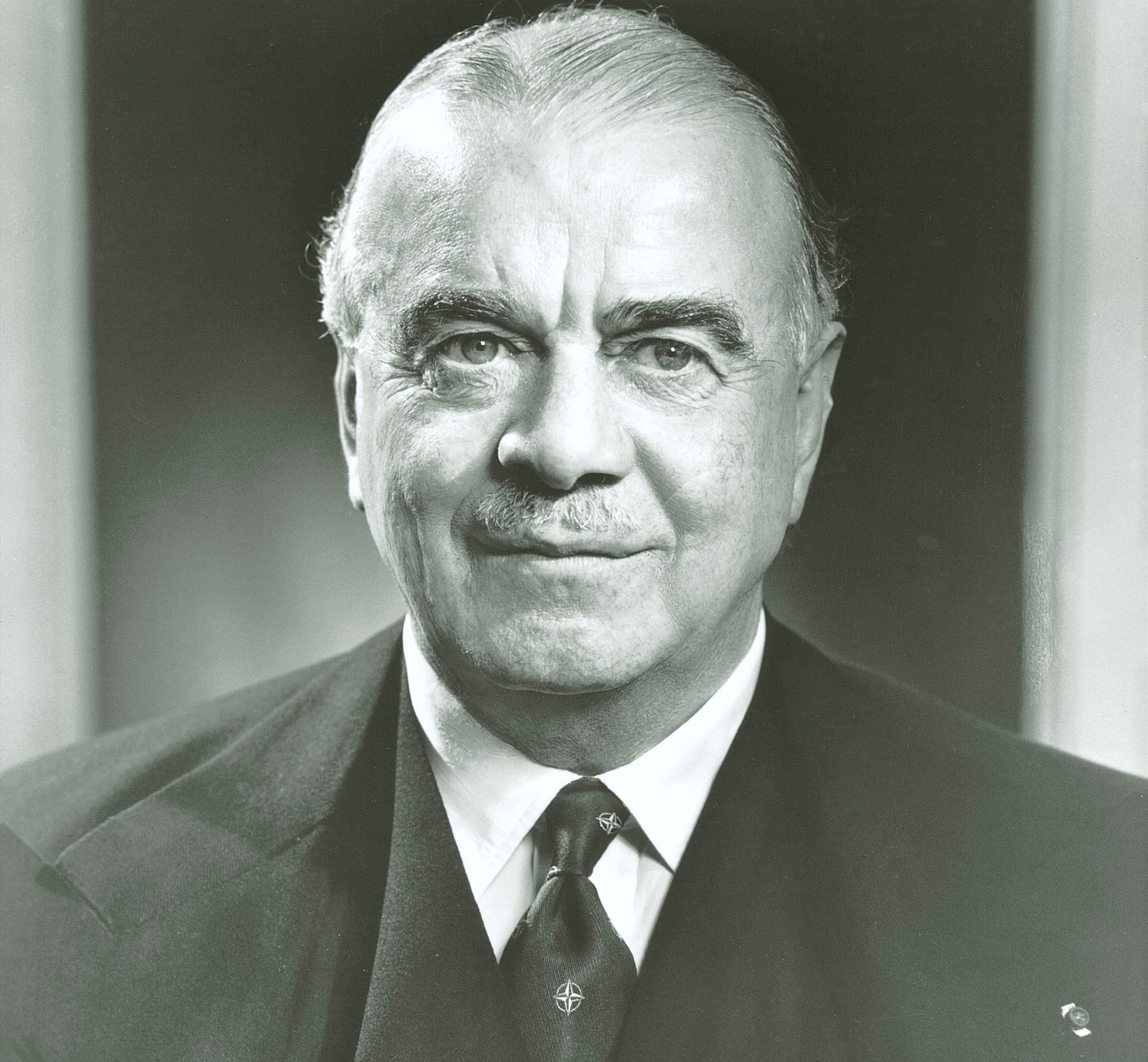 |
Lord Ismay |